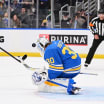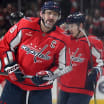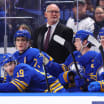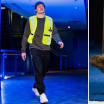As part of the NHL's celebration of Black History Month, NHL.com will highlight great moments and important figures in black hockey history each day throughout February. Pioneers like Willie O'Ree, Angela James and Grant Fuhr will be featured.
Today we look at O'Ree, who in 1958 became the first black player to play in the NHL.
Black History Month spotlight: O'Ree's NHL debut
Pioneer, League diversity ambassador played first game for Bruins in 1958
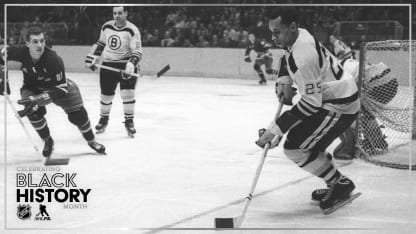
© B Bennett/Getty Images
A look back at the impact of O'Ree's NHL debut


